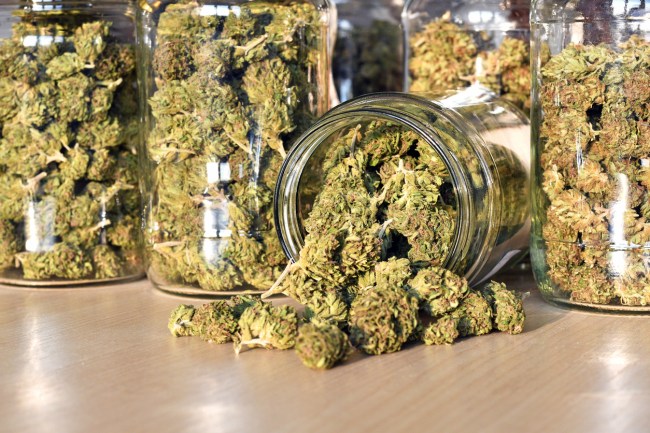
iStock
It was once a right of passage for young people to experiment with alcohol and tobacco as they made the steady ascent into the drab world of adulthood. Teenagers used to sneak beers from their old man’s workshop refrigerator and smokes from the carton he had tucked away under the seat of his truck to get the first whiff of what it is to self medicate through decades of mediocrity and certain death. But the times have changed, according to a recent study. It seems that kids are no longer looking to booze and cigarettes as their first drug of choice. These days, they are chiseling their ambitious path from whippersnapper to maturity under the influence of marijuana.
Researchers at the Johns Hopkins Bloomberg School of Public Health say the number of teenagers who use marijuana before any other substance has nearly doubled over the past decade. The rub, according to the scientific minds associated with the study, is that more young adults between the ages of 12 and 21 have been sold on the fact that alcohol and tobacco are dangerous. The cannabis plant however, is less intimidating.
“The finding might arise because in the past decade, there have been major public campaigns warning of the dangers of tobacco and alcohol, whereas in contrast the media coverage of American states legalizing cannabis creates the public impression that cannabis has no risks or dangers,” Professor Terrie Moffitt, a clinical psychologist at King’s College London, told The Guardian.
The weed-first philosophy is not as big of a problem for White America. The study, which was published in the journal Prevention Science, shows that American Indians, Alaska natives and blacks are more likely to go with marijuana rather than alcohol or tobacco. This decision was also more likely if the person was male.
It is important to point out that the study also reveals an overall decline in substance use. Consistent with previous studies that have surfaced over the past few years, the data shows that fewer kids are interested in exploring drugs, regardless of whether they are legal or not.
But younger Americans hitting marijuana before any other substance is not necessarily bad thing.
A separate paper published last week in the Study of Addiction finds that legal drugs, like alcohol and tobacco, are far more dangerous than marijuana. These socially acceptable drugs, which are sold to the masses with slick packaging and clever advertising, are responsible for a variety of health issues ranging from cardiovascular problems to cancer.
“Their health burden is accompanied by significant economic costs, namely expenditure on healthcare and law enforcement, lost productivity, and other direct and indirect costs, including harm to others,” researchers said. “Estimating the prevalence of use and associated burden of disease and mortality at the country, regional, and global level is critical in quantifying the extent and severity of the burden arising from substance use.”
What’s more is the combined death toll from alcohol and tobacco resides at near genocidal levels. Somewhere around 568,000 people in the United States, alone, die every years from a relationship with these substances. That number skyrockets into the millions at the global level.
But marijuana, which even the federal government admits is only about as addictive as caffeine, is the safer choice. Not only has it been made legal in over half the United States for medicinal purposes, providing people with an alternative to prescription painkillers and way out of hardcore addiction, the herb has never caused a single overdose death.
“No death from overdose of marijuana has been reported,” according to the U.S. Drug Enforcement Administration.
But if more teens are turning to marijuana as their first drug of choice, does this mean it is a gateway to other substances? Not necessarily. In fact, a study published last year found that cannabis actually prevents people from doing hard drugs, like cocaine and heroin. Other studies published over the years have turned out similar results.
Even former U.S. Attorney General Loretta Lynch admitted back in 2016 that marijuana was not a gateway to harder substances. During a lecture on opioid abuse, she said, “It’s not as though we are seeing that marijuana is a specific gateway.”
“When we talk about heroin addiction, we unusually, as we have mentioned, are talking about individuals that started out with a prescription drug problem, and then because they need more and more, they turn to heroin,” she said. “It isn’t so much that marijuana is the step right before using prescription drugs or opioids.”
Mike Adams is a freelance writer for High Times, Cannabis Now, and Forbes. You can follow him on Facebook, Twitter, and Instagram